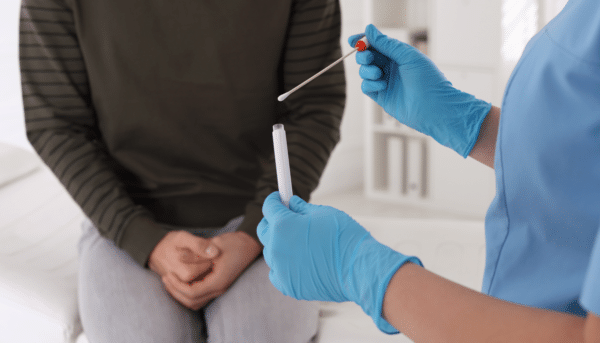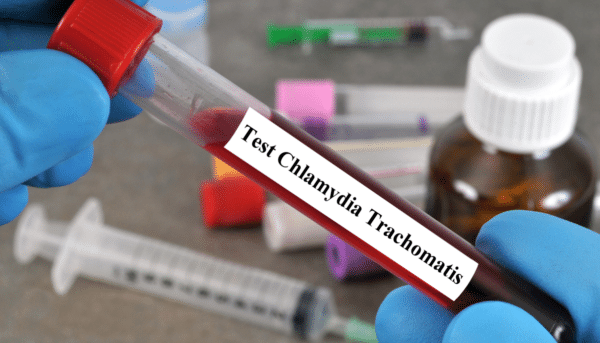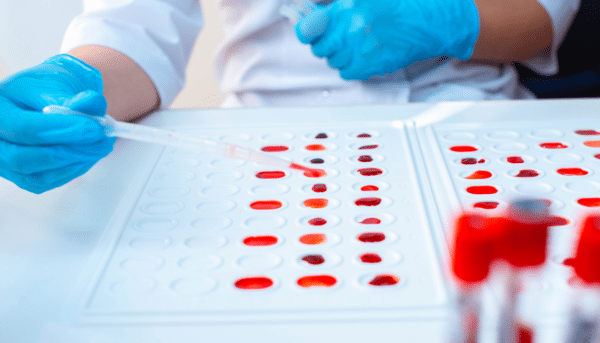Introduction
Chlamydia remains one of the most significant public health concerns today, affecting millions of individuals worldwide annually. This sexually transmitted infection (STI) often progresses silently, showing no symptoms in many cases, which allows it to cause more severe health problems if not diagnosed and treated promptly. Blood tests play a critical role in the early detection and management of Chlamydia, offering a reliable diagnosis even when symptoms are absent. Understanding the types and effectiveness of these tests is essential for anyone seeking to maintain or monitor their sexual health proactively. This article explores the various Chlamydia tests available, emphasizing the importance of blood tests and how they help in the battle against this silent infection.
What is Chlamydia?
Chlamydia trachomatis is a type of bacteria that can be transmitted sexually and cause an infection known as Chlamydia. It is one of the most common STIs globally, with millions of new cases occurring yearly. The infection primarily spreads through sexual contact, including vaginal, anal, and oral sex.
Types of Chlamydia Bacteria
The bacterium Chlamydia trachomatis is the most well-known agent of Chlamydia infections, typically affecting the genital tract. However, Chlamydia can also be caused by other species, such as Chlamydia pneumoniae, which infects the respiratory tract, and Chlamydia psittaci, which can cause psittacosis, a type of lung infection.
Effects on the Body
In the early stages, Chlamydia may cause mild or no symptoms at all, which can make it difficult to detect without testing. In women, if left untreated, it can lead to severe reproductive and other health problems like pelvic inflammatory disease (PID), which can result in infertility, ectopic pregnancy, and chronic pelvic pain. In men, Chlamydia can cause urethritis and complications such as epididymitis, which can lead to infertility if not treated properly.
Statistical Overview
The World Health Organization confirms there are an estimated 161 million new cases of Chlamydia each year worldwide. Young adults and teenagers are the most affected populations, highlighting the need for targeted health education and screening programs.
This bacterial infection’s ability to “hide” without noticeable symptoms in many individuals underscores the critical need for regular screenings, especially among sexually active young people. The silent nature of Chlamydia, combined with its potential for causing long-term harm, makes it a prime target for early and proactive diagnostic efforts through various testing methods, including blood tests.

Signs and Symptoms of Chlamydia
Chlamydia is notoriously stealthy, often manifesting no symptoms at all, which makes it easy to transmit unknowingly. Symptoms, if and when they occur, may present differently in men and women, though there are some shared characteristics.
Common Symptoms in Both Men and Women
For those who do experience symptoms, they may include:
- Discharge: A noticeable increase in discharge from the penis or vagina, which can be clear, white, or cloudy.
- Burning Sensation During Urination: Pain or burning while urinating is a frequent symptom and can be uncomfortable.
- Pain during Intercourse: Particularly in women, Chlamydia can cause discomfort during sexual activity.
- Rectal Pain or Discharge: Infections that spread to the rectal area might cause these symptoms.
Asymptomatic Nature
It’s essential to underscore that up to 70% of women and about 50% of men with Chlamydia do not exhibit any symptoms at all. This asymptomatic nature significantly complicates efforts to control the disease’s spread, as many people may carry and transmit the infection without knowing it.
Implications for Sexual Health
The absence of symptoms means that many individuals do not seek testing and continue to spread the infection. Regular screening is critical, especially for sexually active individuals and those with new or multiple partners.
Long-term Health Complications if Left Untreated
If Chlamydia is not diagnosed and treated early, it can lead to severe health complications, including:
- In women: The reproductive system may sustain permanent harm, which could result in infertility, chronic pelvic pain, and ectopic pregnancy.
- In men: Epididymitis, which can also result in infertility.
- In both: Reactive arthritis, also known as Reiter’s syndrome, can develop.
The silent progression of Chlamydia underscores the importance of routine screenings, particularly blood tests, which can detect the infection even in the absence of symptoms. Raising awareness about these potential outcomes is vital to encourage more people to undergo regular testing.

Importance of Testing for Chlamydia
The silent nature of Chlamydia infections, coupled with their potential to cause significant health complications, underscores the critical importance of regular testing. Detecting Chlamydia early is crucial for preventing its spread and mitigating the long-term health consequences it can have on individuals.
Silent Nature of the Infection
Chlamydia often progresses without any noticeable symptoms, which means many individuals may carry the infection for years without knowing. This silent transmission is a primary reason why Chlamydia remains one of the most common and insidious sexually transmitted infections.
Role of Timely Diagnosis
Early diagnosis through regular screening is essential, especially for sexually active individuals, as it allows for the prompt treatment of the infection before it causes serious health issues. Blood tests, in particular, are invaluable tools for detecting Chlamydia. Unlike symptom-based detection, which may not be reliable due to the asymptomatic nature of the disease, blood tests can identify antibodies or DNA of the Chlamydia bacteria, confirming the presence of the infection even when no symptoms are apparent.
How Blood and Urine Tests Help
| Test Type | Use Case | Advantages |
|---|---|---|
| Blood Tests | Detecting past exposure; respiratory symptoms suggesting Chlamydia pneumoniae infection. | Useful for historical data on exposure |
| Urine Tests | Straightforward, current genital infections | Ease of collection; direct detection of bacterial DNA |
Both tests are critical in the public health strategy to control and prevent Chlamydia infections. They are particularly vital for population groups at higher risk, such as young adults and teenagers, who might be less likely to seek regular health check-ups.
Preventing Long-Term Health Issues
Regular Chlamydia testing can prevent a range of complications. For women, early detection and treatment can avert conditions like pelvic inflammatory disease (PID), which is a major cause of infertility. For men, testing can help prevent conditions such as epididymitis, which can also lead to infertility if untreated.
These diagnostic tools are a vital component in the fight against Chlamydia, emphasizing the need for increased awareness and access to testing facilities. By promoting regular screening, especially among young people, public health initiatives can significantly reduce the impact of this infection on individual and community health levels.
Types of Chlamydia Blood Tests
Chlamydia testing is a crucial step in diagnosing and managing this common sexually transmitted infection. While several testing methods are available, blood tests play a significant role due to their ability to detect the infection even in its asymptomatic stages. Here, we explore the main types of Chlamydia blood tests, detailing their methodologies, benefits, and limitations.
Chlamydia Pneumoniae Blood Test (IgG and IgM)
- Methodology: This test detects IgG and IgM antibodies specific to Chlamydia pneumoniae, a species of Chlamydia that primarily affects the respiratory system. The presence of IgM antibodies typically indicates a recent infection, whereas IgG antibodies can suggest a past or ongoing infection.
- Specimen Requirements: A blood sample is required.
- Preparation: No special preparation is needed for the patient before the test.
- Results Timeline: Results are usually available within a few days to a week.
More information on this test can be found here.
Chlamydia Trachomatis Antibodies Blood Test (IgG, IgA, and IgM)
- Methodology: This test looks for antibodies against Chlamydia trachomatis, the bacterium most commonly associated with Chlamydia infections in the genital and urinary tracts. It differentiates between IgG, IgA, and IgM antibodies to determine the stage of the infection.
- Specimen Requirements: A blood sample is necessary.
- Preparation: No fasting or special preparation is required.
- Results Timeline: Typically, results are processed within one to two weeks.
More information on this test can be found here.
Comparison with Chlamydia and Gonorrhea Urine Test, Random
- Methodology: The urine test for Chlamydia and Gonorrhea detects the DNA of these bacteria through nucleic acid amplification tests (NAATs), which are highly sensitive and specific.
- Specimen Requirements: A urine sample is needed.
- Preparation: Patients are usually advised not to urinate for at least one hour before sample collection.
- Results Timeline: Results can often be available as soon as the next day.

Comparison of the Tests
While both blood and urine tests provide essential diagnostic information, their applications can vary based on the clinical scenario:
- Blood Tests: More useful for detecting past exposure and for cases where respiratory symptoms suggest Chlamydia pneumoniae infection.
- Urine Tests: Preferred for straightforward, current genital infections due to their ease of collection and the direct detection of bacterial DNA.
Both types of tests are critical tools in the epidemiological management of Chlamydia, allowing healthcare providers to tailor treatment strategies effectively and prevent the spread of this infection.
Ordering Tests Online Through Walk-In Lab
In today’s digital age, accessing healthcare services online has become increasingly common, offering convenience and confidentiality. One such service is Walk-In Lab, which allows individuals to order Chlamydia tests online with ease. Here’s how you can use Walk-In Lab to select and order Chlamydia tests, and what to expect throughout the process.
How to Use Walk-In Lab
- Step 1: Test Selection
- Visit the Walk-In Lab website and browse their selection of Chlamydia tests. The site offers detailed descriptions and instructions for each test, helping you choose the one that best fits your needs based on the information discussed in the previous sections.
- Step 2: Purchasing the Test
- Once you have selected the appropriate test, you can purchase it directly on the website. Walk-In Lab offers various payment options, including credit cards and health savings accounts (HSAs).
- Step 3: Locating a Testing Center
- After purchasing the test, you will receive information on how to locate a nearby lab where you can go to have your blood or urine sample collected. Walk-In Lab is partnered with numerous lab facilities nationwide, ensuring you can find a convenient location.
What to Expect at the Lab
- Appointment: While an appointment is not always necessary, it’s recommended to check with the specific lab location to see if they prefer or require scheduling.
- Visit: At the lab near you, present the order form you received from Walk-In Lab. The medical staff will collect the required specimen following strict medical guidelines to ensure safety and accuracy.
- Privacy: The process is confidential, and your test results are then sent directly to you via a secure online account, maintaining privacy.
Receiving Results Online
- Timeline: The results are typically available within several days, depending on the specific test.
- Accessing Results: You can access your test results by logging into your Walk-In Lab account. The results will include a detailed report explaining the findings.
- Consultation: If your test results are positive or if you have questions about your results, you should consult with a healthcare provider to discuss the next steps.
Using online services like Walk-In Lab not only simplifies the process of getting tested for Chlamydia but also helps maintain your privacy and control over your health decisions.
Conclusion
Chlamydia remains a pervasive and often silent threat, capable of causing significant health complications if left undiagnosed and untreated. Throughout this article, we’ve explored the various types of Chlamydia tests, highlighting the critical role that blood tests play in the early detection of this infection. These tests are essential tools in the fight against Chlamydia, enabling timely intervention and treatment that can prevent severe outcomes like infertility and chronic pain.
Understanding the options available for Chlamydia testing, including the convenience and confidentiality offered by online services like Walk-In Lab, empowers individuals to take proactive steps in managing their sexual health. Regular testing is crucial, particularly for those who are sexually active, as it ensures early detection and treatment, significantly reducing the risks associated with this infection.
By staying informed about the symptoms, testing methods, and treatments for Chlamydia, individuals can better protect themselves and their partners from this often silent yet treatable condition. It’s essential to prioritize regular screenings and seek medical advice when necessary, maintaining open communication about sexual health to help eradicate the stigma surrounding STIs and encourage more people to get tested.

